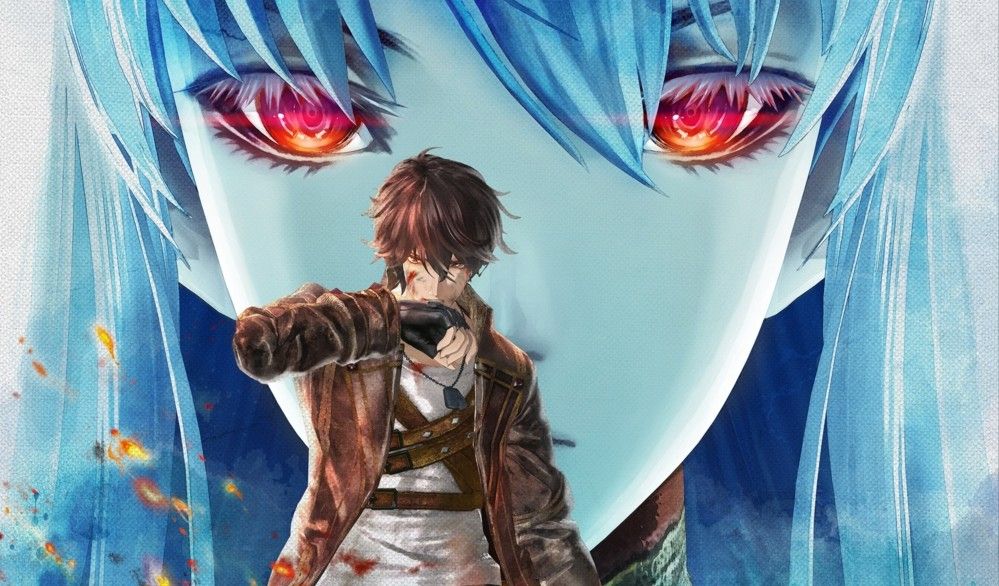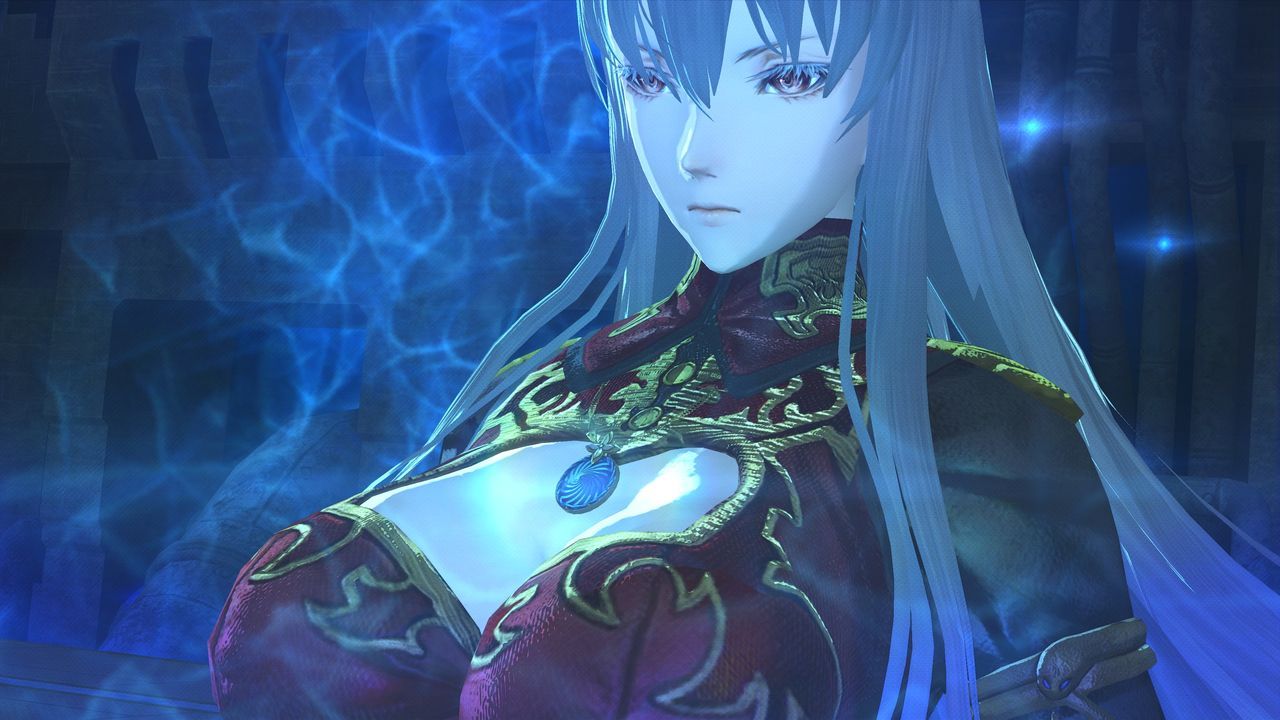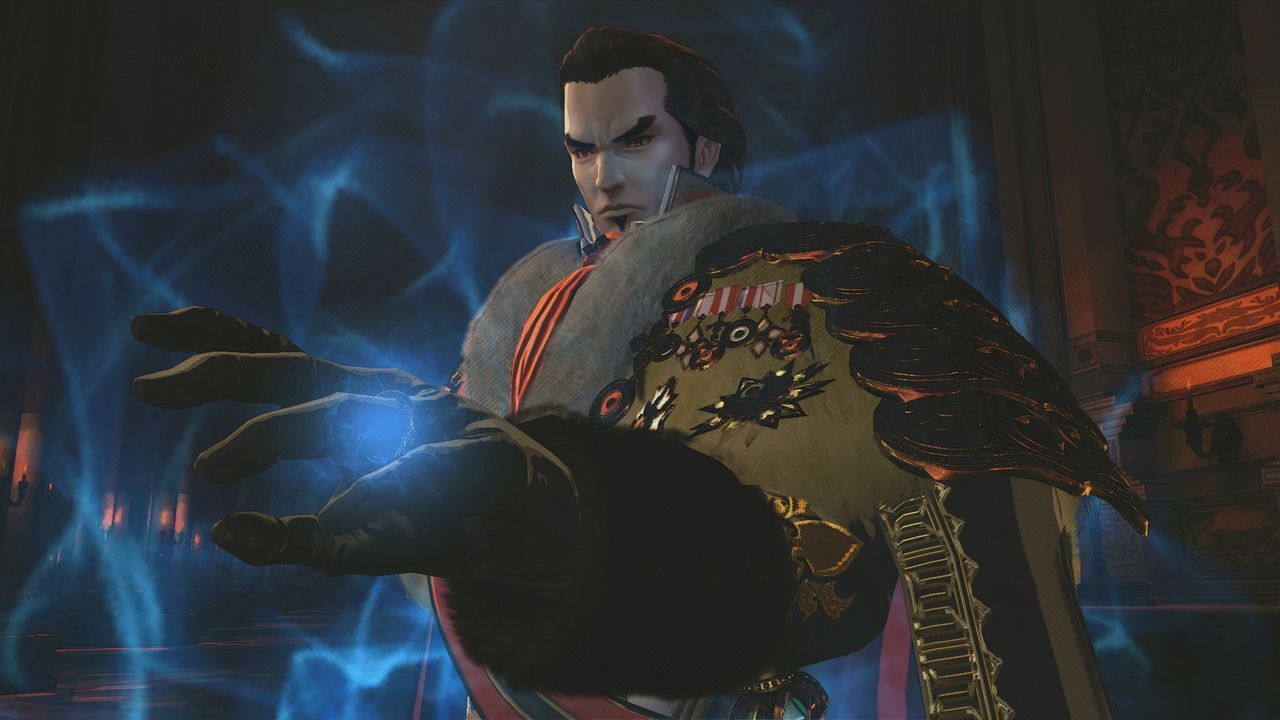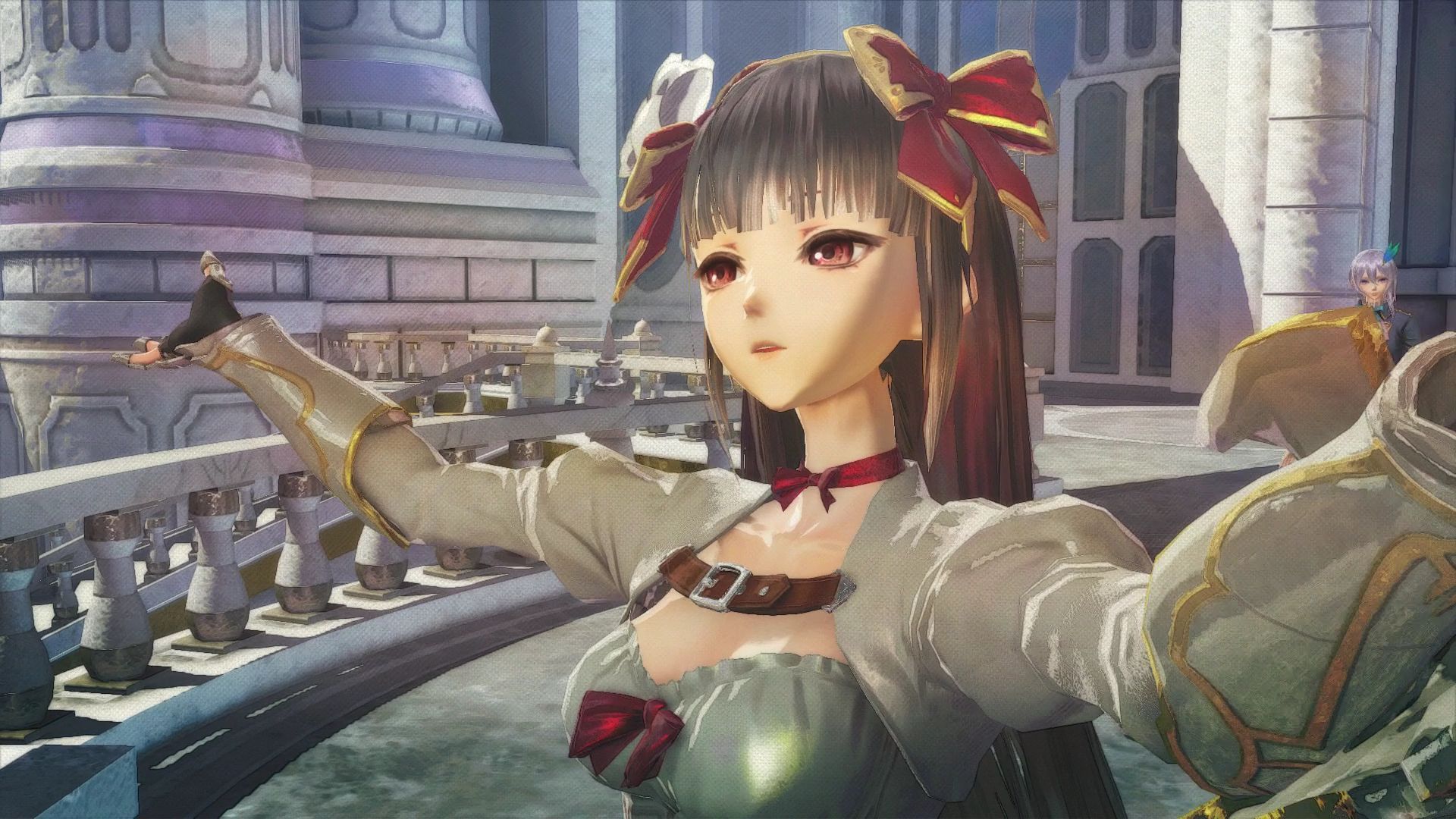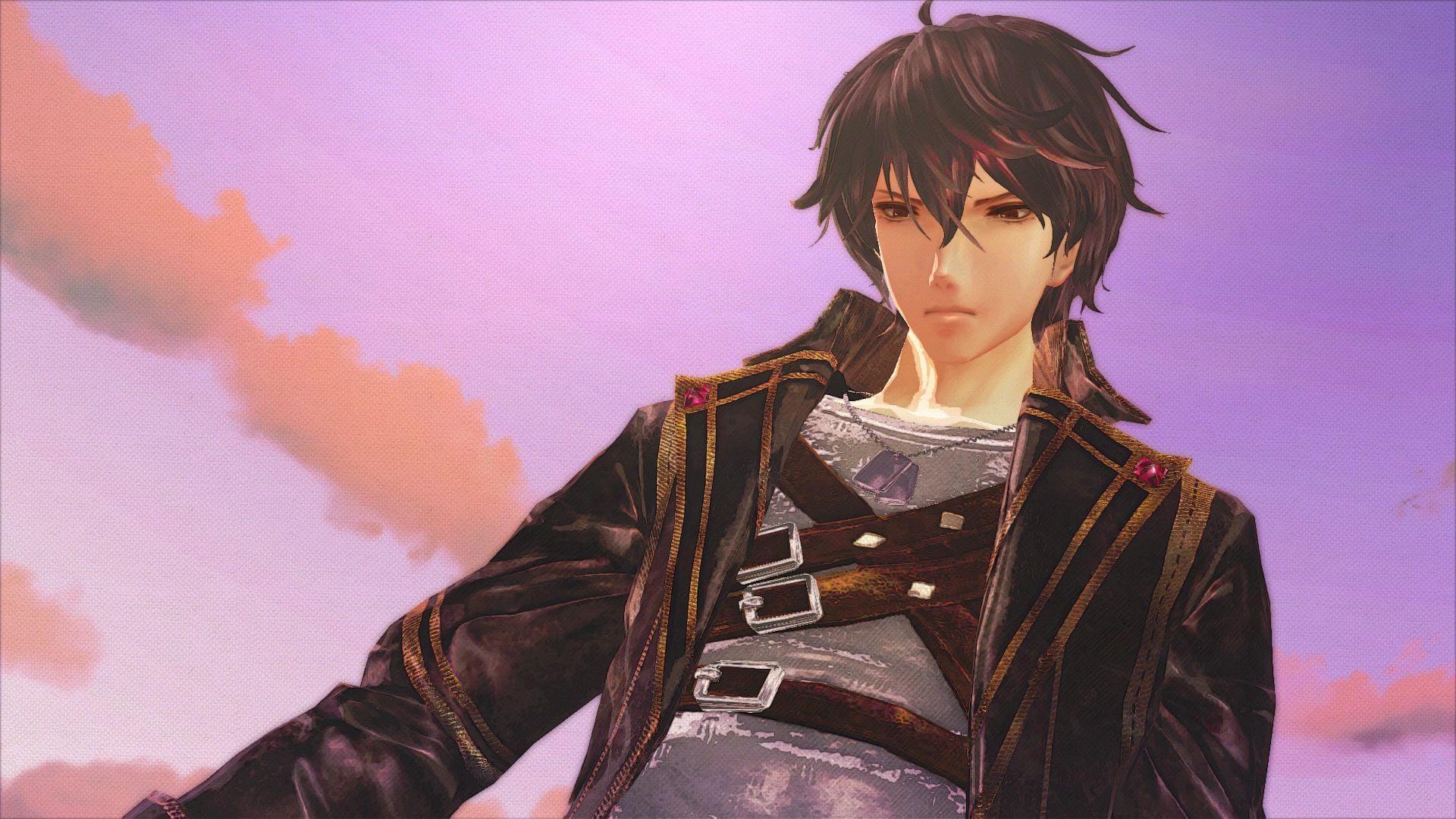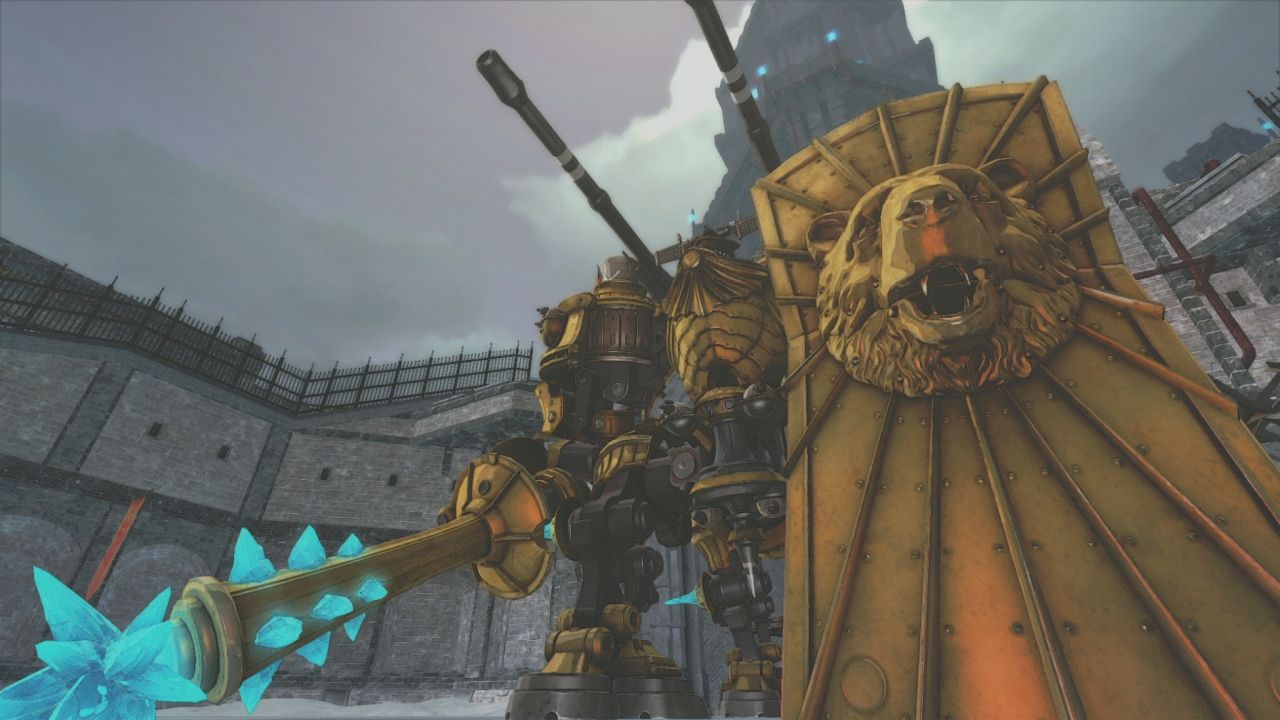After Valkyria Chronicles 3 skipped a western release, fans in the west have been hungry for a new Valkyria game. While remasters are great, a full-fledged return of the series has been long overdue.
Yet, those who expect a sequel of the Valkyria Chronicles series, or even a game in the same setting, will probably be disappointed: Valkyria Revolution isn't set in the same timeline as the first three games, or even in the same world. To put it simply, you can see it like the Final Fantasy franchise, with games completely separate from each other, but loosely based on similar principles and ideas.
Like the Valkyria Chronicles series, Valkyria Revolution is a tale of war set in a fictional reimagination (even if a different one) of the real Europe of the past, with the addition of fantasy elements and a bit of steampunk to spice up things.
While Valkyria Chronicles is set in a period inspired by World War I and World War II, Revolution goes further back to the 19th century, talking inspiration from conflicts like the Napoleonic Wars or the Austro-Prussian War.
This is probably the first weakness of the game: while Valkyria Chronicles takes a very well known and iconic period of history and spices it up a little with fantasy elements sprinkled in moderation, Revolution's historical elements are more obscure, and the team compensated with a lot more magic, detracting from the unique factor that made the series great.
That being said, if you can look past setting comparison and the fact that this isn't a Valkyria Chronicles game, the story is actually very good.
The small kingdom of Jutland is being choked by an economic embargo set by three surrounding superpowers led by the highly imperialistic and aggressive Ruzi Empire. In the meanwhile, the Emperor himself trespasses into Jutland with his generals in order to locate an artifact of great power, and in the process he burns down an orphanage and kidnaps the teacher in charge.
Years later, the kids from that orphanage have grown up and hustled to get into distinguished position in the army, industry, politics, press and intelligence. They're ready to kickstart a plot to get revenge against the Emperor, and don't mind plunging the whole country into a war in order to achieve their goal.
[pullquote]"Interestingly, one of the most compelling characers is Klaudiusz, Emperor of Ruzi, who definitely isn't your usual crazy villain."[/pullquote]
The plot alternates between those five conspirators and Jutland's anti-Valkyria platoon Vanargand, with stoic (and deeply troubled) protagonist Amleth in the middle, basically living a double life of heroism, intrigue, manipulation and misdirection.
On the other hand we have Princess Ophelia, heir to Jutland's throne who wants to lead from the front. Her naivety and idealism form a strong contrast with Amleth's disillusioned attitude.
The rest of the cast is formed by a diverse batch of individuals that often match anime tropes. Yet, that's not necessarily a bad thing, and it worked very well for previous Valkyria Chronicles games.
Interestingly, one of the most compelling characers is Klaudiusz, Emperor of Ruzi, who definitely isn't your usual crazy villain. While imperialism and personal ideals certainly place him in the position of the oppressor, he's actually the one character who I would easily define superior to his counterpart in Valkyria Chronicles, proving a more believable and intriguing enemy compared to Maximilian.
The overall themes are certainly darker compared to those of Valkyria Chronicles, and that's not unwelcome. Unfortunately, despite its superficially grittier elements, Revolution doesn't manage to create moments as emotionally intense as its predecessor. I'm sure you all remember a certain scene in the original Chronicles that felt like a sharp punch to the stomach delivered with very little warning. That game was full of impactful moments, and its successor is certainly more of a lightweight in the punches it throws at your emotions.
A very relevant warning has to be provided about the game's reliance on cutscenes to tell the story. There is a metric ton of them, and in many cases absolutely massive. This isn't a bad thing per se, and if you enjoy sitting back and relaxing while getting a deeper dive in the setting and in the relationships among characters, you'll probably enjoy them, even if animation is sub-par and visuals certainly aren't a technical marvel. On the other hand, if you're in the camp that lambasted Metal Gear Solid 4 for its cutscene-heavy storytelling, Valkyria Revolution will drive you absolutely crazy.
Deeply linked with the story is the game's audio presentation. Japanese voice acting is really good, enriched by high level actors that fit their roles to perfection, and really contribute to bringing the characters to life. This is actually needed and welcome, considering the lackluster animations during cutscenes.
On the other hand, English voice overs are nothing to call home about, and the localization is pretty low in quality: there are occasional but clear cut mistakes in translation, and large liberties are taken, often creating a strong dissonance between the Japanese voice overs and English subtitles, if you go that route.
Luckily, audio also marks one of the game's best perks. The soundtrack by Xeno series Maestro Yasunori Mitsuda is one of the best I have heard in a long while, enriching the story massively, and underlining every moment perfectly. It's powerful, epic, emotional, and basically all I want from a JRPG score. While some moments in the story and some missions could have been fleshed out better, the soundtrack gives them new shine, largely improving the whole scenario.
Visuals are the very definition of hit and miss. There certainly are good ideas in the background, but the results simply aren't on par with today's standards, or even with yesterday's. The development team abandoned Valkyria Chronicles' CANVAS engine, and moved on to another named Gouache. While the basic idea of creating a painterly look is the same, implementation is lacking, and the final visual result is arguably worse.
I suspect that due to the long planning and development cycle, the team ended up using technology that was mostly designed for PS3, with the result that it feels a lot more like a game from the initial months of the PS4 lifespan, instead of one released three years and a half in.
[pullquote]"It feels a lot more like a game from the initial months of the PS4 lifespan."[/pullquote]
On top of that, the character design by Hiro Kiyohara is absolutely beautiful on paper (and very fitting to the game's dark themes), but it wasn't adapted that well to 3D models, that often feel weak and inexpressive.
Valkyria Chronicles' original character design by Raita Honjo worked a lot better with the CANVAS portrayal than Kiyohara's does with Gouache. This isn't necessarily the artist's fault, and quite possibly not even a problem specific to the game's 3D artists. Kiyohara-sensei's artwork simply doesn't translate to 3D all that well, in my opinion.
The issue continues with the game's environments. They're not terrible, or even bad, but they often feel uninspiring due to repetitive level design and low resolution textures. On the other hand, a lot of attention has gone into designing the world and setting via architecture, fashion and art, but this translates mostly into cutscenes. It does great for world building, but doesn't help much while we play individual missions.
Moving on to gameplay, the fundamental structure of the game's battle is deeply rooted on the history of its development, but not of its franchise.
The team opted to make Revolution into a full-fledged parallel sub-franchise compared to Chronicles. In order to achieve that, they moved to an action RPG style instead of the strategy gameplay implemented in the first three games. When the first demo was released, the fans reacted very negatively to the change, so the team partly relented, and changed things to a hybrid system.
While you can move your character (leading a squad of four, of which three are conrolled by the AI at every given time) in any way you like, the pace of his or her actions is governed by a time-based gauge that needs to fill before you can strike. Once you're ready, you can either deliver normal attacks, or special ones via a wheel menu that can be brought up by pressing triangle, fully pausing the action while you choose.
This is basically the opposite to the system featured in previous Valkyria games, where movement was turn-based, and attacks included a small degree of (mostly cosmetic) action-based freedom.
While listening to the feedback of the fans is often important, I believe that in this case developers made a basic mistake in not sticking to their guns. Since they were dead set on a departure from the turn-based tactical solution of Valkyria Chronicles, a pure action RPG system would have probably met resistance among veteran fans, but would have at least appeased to new ones.
On the other hand, this hybrid system is neither meat nor fish. It lacks the tactical depth of a strategy-based system, but it does not achieve the exhilarating pace of an action-RPG system. The attempt to make everyone happy resulted in a battle system hindered by its duality, and that probably won't fully satisfy either camp.
The problem is amplified by the AI of the enemies, which often just stand there to be slaughtered. This is probably vestigial of the original action-RPG setup, that tends to be more tolerant of less active rank-and-file targets, but often makes using more elaborate tactics (and the pause that comes with them) superfluous and a bit of a chore.
[pullquote]"The attempt to make everyone happy resulted in a battle system hindered by its duality."[/pullquote]
Luckily, once you get used to it, it's still enjoyable, and especially certain boss battles are a lot of fun, but I definitely hope that next time the team will just go one way or the other, without trying to make everyone happy. That being said, I suspect (or at least I hope) that the action-RPG idea will be scrapped altogether in favor of a return to the classic series.
One of the most beefy areas of Valkyria Revolution's gameplay is its progression and customization system. You can set up your squad with a large variety of magical attacks, buffs and recovery powers, evolve their Magitek... ahem... Ragnite weapons to give them an edge in this or that aspect of battle, buy and develop new secondary weapons, and even have new equipment crafted from materials looted on the battlefield.
If you like min-maxing your soldiers and honing your team for maximum effectiveness, Valkyria Revolution gives you plenty of elbow room, and a system deep enough to keep you busy for a long time.
Ultimately, gameplay isn't especially bad or particularly good. It feels a lot more like a mean to an end than the real focus of the game. That end is telling a complex story of war and revenge, and Valkyria Revolution does a much better job at that than it does at engrossing you with epic battles.
If you're on the market for a fairly enjoyable JRPG with a good story and interesting characters, this game fits the bill (even more so on Xbox One, that doesn't get many JRPGs at all), but if you're looking for a new Valkyria Chronicles, unfortunately it falls short of that legacy.
That being said, if you can lock up the adventures of Welkin, Alicia and Selvaria in a corner of your brain, and approach Valkyria Revolution as its own independent animal, it tells a story worth enjoying, in a setting worth exploring.
Yet, I can't lie: I hope that Sega will interpret the reception of this game as a signal that we want more Valkyria Chronicles. This kind of spin-off can certainly be a valid experiment, but it's better explored when the hunger for the main course has been sated, and not when we're all starving.

